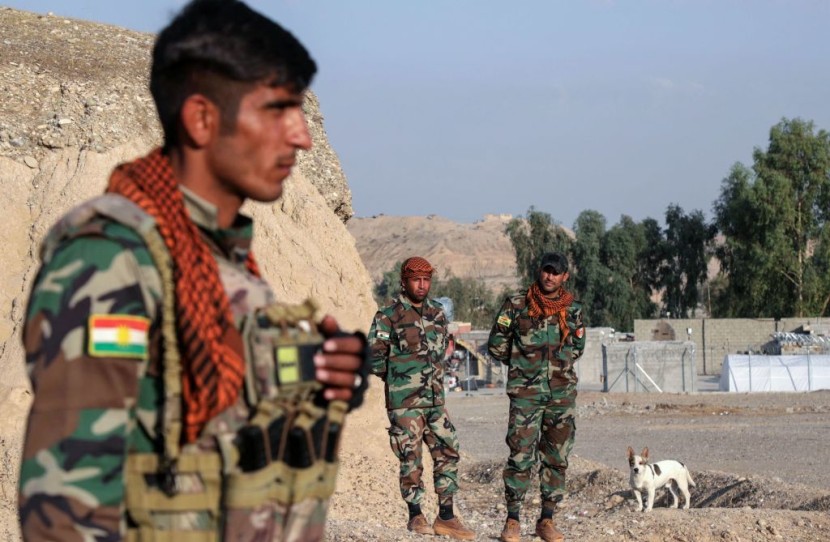
Iran had deployed more special troops to its northern border with Iraq to deter what it claims is infiltration by Kurdish opposition organizations, according to a Friday report by Iranian state media.
General Mohammad Pakpour, head of the Iranian Revolutionary Guard's ground forces, noted that "armored and special forces" units had been dispatched to the provinces of the west and north-west to enhance current border protection, per a report from state run news organization IRNA.
Tehran alleges that Kurdish opposition parties in exile in Iraq are organizing nationwide anti-government rallies. Per AP News, the recent military deployment seeks to stop infiltration and the smuggling of firearms into the north by these groups.
Kurdish groups have always denied this accusation, and Iran has not shown proof to the contrary.
Iran maintains multiple military sites along the Iraqi border, where personnel have rotated for decades.
According to Iraqi military spokesperson Maj. Gen. Yahya Rasool, the army movement follows Iraqi directions to increase security along its border to avoid shelling in Iran in the future. Northern Iraq is governed by Kurds, and this is where many Kurdish resistance forces are based.
Iran Nationwide Protests Reach Critical Level
Iran was rocked by protests in September after a young lady died while in police detention for breaking the Islamic Republic's stringent dress code for women.
Mahsa Amini, a 22-year-old Iranian woman, passed away on September 16, just three days after being arrested by the country's morality police. Amini's family claims she was beaten in police detention, but Iran denies it, according to The San Diego Union-Tribune.
The Islamic State is facing one of the largest crises in its history as a result of the demonstrations.
Read Also : China Sees 30,000+ Surge in COVID-19 Cases Despite Zero-Tolerance Policy | Here's Why It's a Big Problem
On Tuesday, the United Nations high commissioner for human rights characterized the situation in Iran as "critical" and lambasted "the hardening" of the action by security forces. Volker Turk, UN human rights chief, told a Geneva conference that two 16-year-old Kurdish Iranian boys were slain this weekend.
Iranian authorities have failed to quell the protest movement, which began as a challenge to mandated veiling and has morphed into a push for regime change.
UN To Launch Investigation
According to Turk, over 300 people have been slain, including more than 40 children, and fatalities have been recorded in virtually all of Iran's 31 provinces.
The mortality toll among certain communities is far higher than that of others. Over 15000 Iranian citizens are now being held in prison.
At least 98 Kurdish Iranians "have been slain by bullets, baton shocks, and knives by the security personnel, according to reports.
The violent crackdown on anti-government protesters in Iran has been the subject of a decision by the UN Human Rights Council to establish a fact-finding mission.
Diplomats from the West have argued that a thorough investigation would send a strong message of support to Iranian women and make perpetrators of crimes accountable.
Iran has denounced proposals for the expedition as a haughty political maneuver.
Turk opened the Geneva session by expressing concern about the "full-fledged crisis" in Iran. Twenty-five states voted in favor of creating a fact-finding expedition, six states voted against it, and 16 states abstained, BBC reported.
US Secretary of State Antony Blinken commended the outcome of the votes. He remarked that the measure will make sure that those involved in the continuing "violent suppression of Iranian people are identified and their actions documented."








